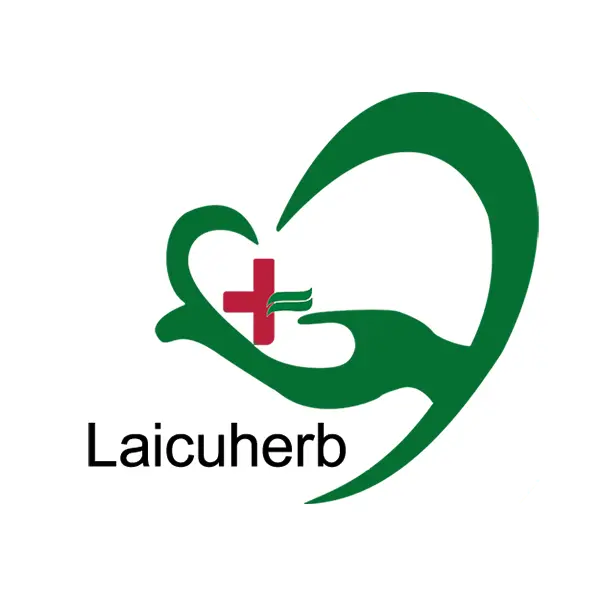For people suffering from insomnia, the time before bed is a "battle," especially when their minds are filled with thoughts, worries, and to-do lists. Given the significant side effects of Western medicine in this area, many have begun to explore natural remedies, withcardiovascular/natural-insomnia-tea"> natural insomnia tea emerging as a popular choice. But does it really help calm a racing mind, allowing you to fall asleep quickly? The answer is yes. Traditional Chinese herbal teas have been used for centuries to solve various human ailments, and promoting relaxation and improving sleep quality have been part of TCM's heritage for thousands of years. When you incorporate a cup of this multi-herb blended teabag into your daily bedtime routine, you'll find that your restless thoughts begin to slow, making it easier to relax and drift into slumber. But what's the reasoning behind it? If you have this question too, please read on.

Research on the Principles of Sleep-Promoting Traditional Chinese Medicine Herbs
Reduced Anxiety and Stress
Many herbs used for sleep promotion have anxiolytic (anti-anxiety) properties. For instance, chamomile contains apigenin, a flavonoid that binds to specific receptors in the brain, which may help reduce anxiety and initiate sleep. Similarly, the amino acid L-theanine has been shown to increase alpha brain waves associated with relaxation.
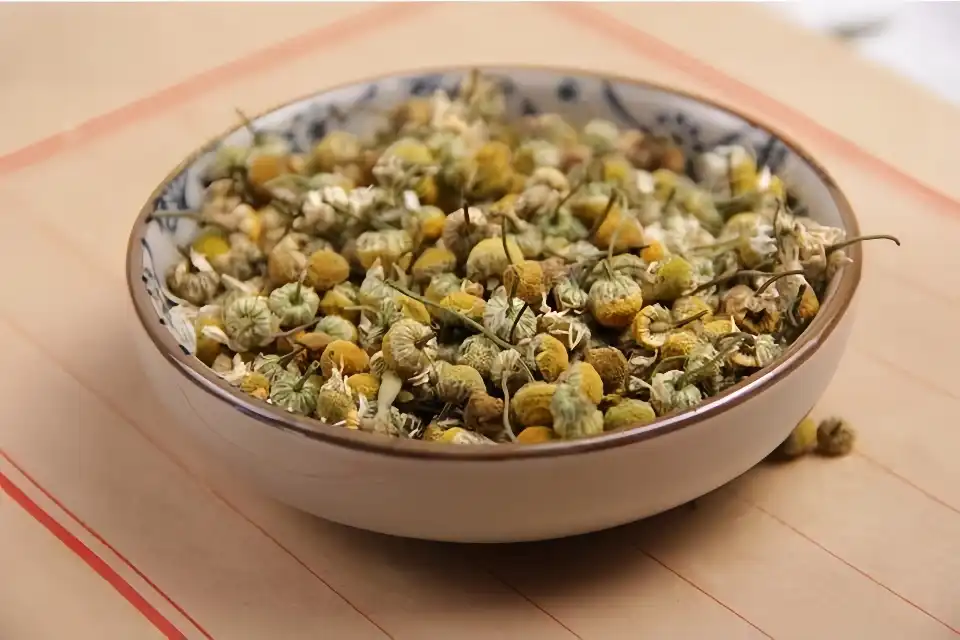
Improved Sleep Quality
One study showed that passionflower tea could significantly improve sleep quality in adults with mild sleep problems.
Regulation of Sleep-Wake Cycle
Valerian root has been found to increase the production of gamma-aminobutyric acid (GABA) in the brain, a neurotransmitter that promotes sleep. This helps reset disrupted sleep patterns and promotes more consistent, restful sleep.
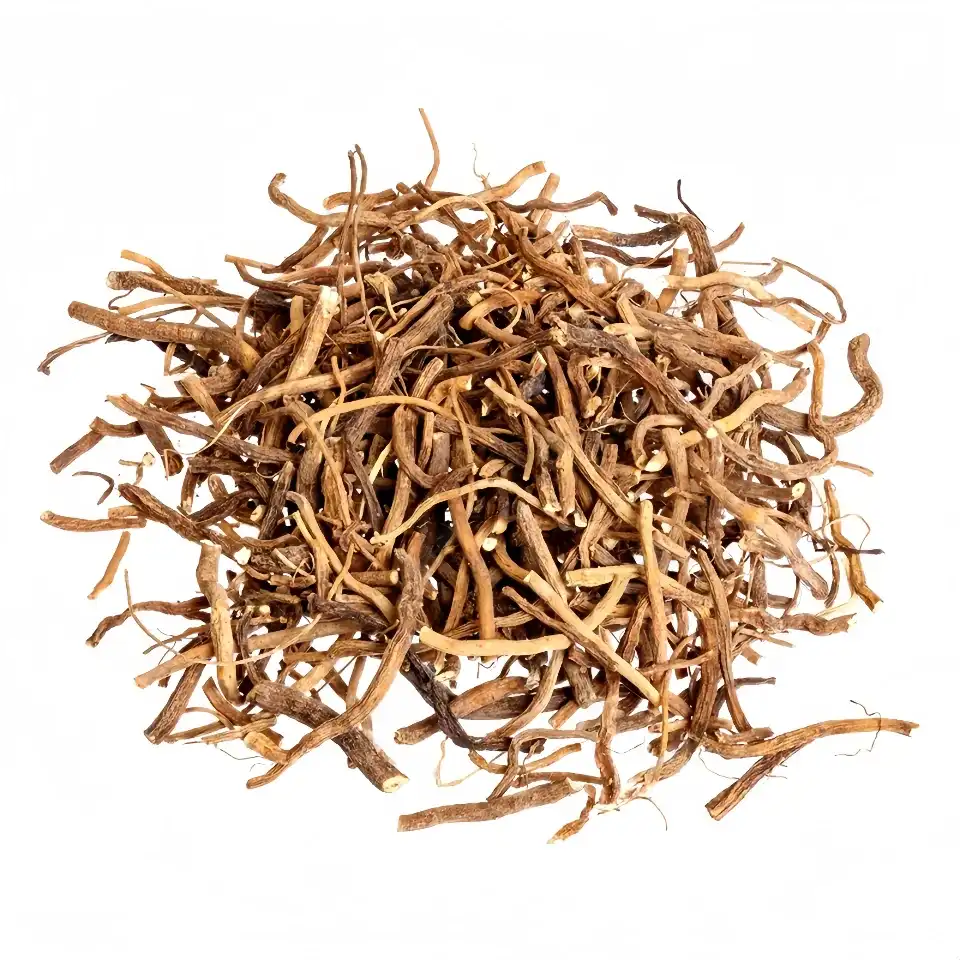
Multiple TCM Herbs Blended Together for Better Efficacy
While many herbs can contribute to better sleep, some are particularly effective at calming a racing mind when used in combination.
Note: Blended use does not mean any combination can be consumed arbitrarily. Traditional Chinese Medicine emphasizes specific ratios; even one gram more of any ingredient could alter the formula's intended effect. Therefore, if needed, please consult a TCM practitioner or directly use commercially pre-blended tea beverages.
Chamomile and Lavender Blend
This classic combination is renowned for its relaxing properties. Chamomile has been used for centuries to promote relaxation and reduce anxiety, while lavender is known for its calming scent and ability to improve sleep quality. Together, they create a powerful blend that can help quiet an overactive mind.
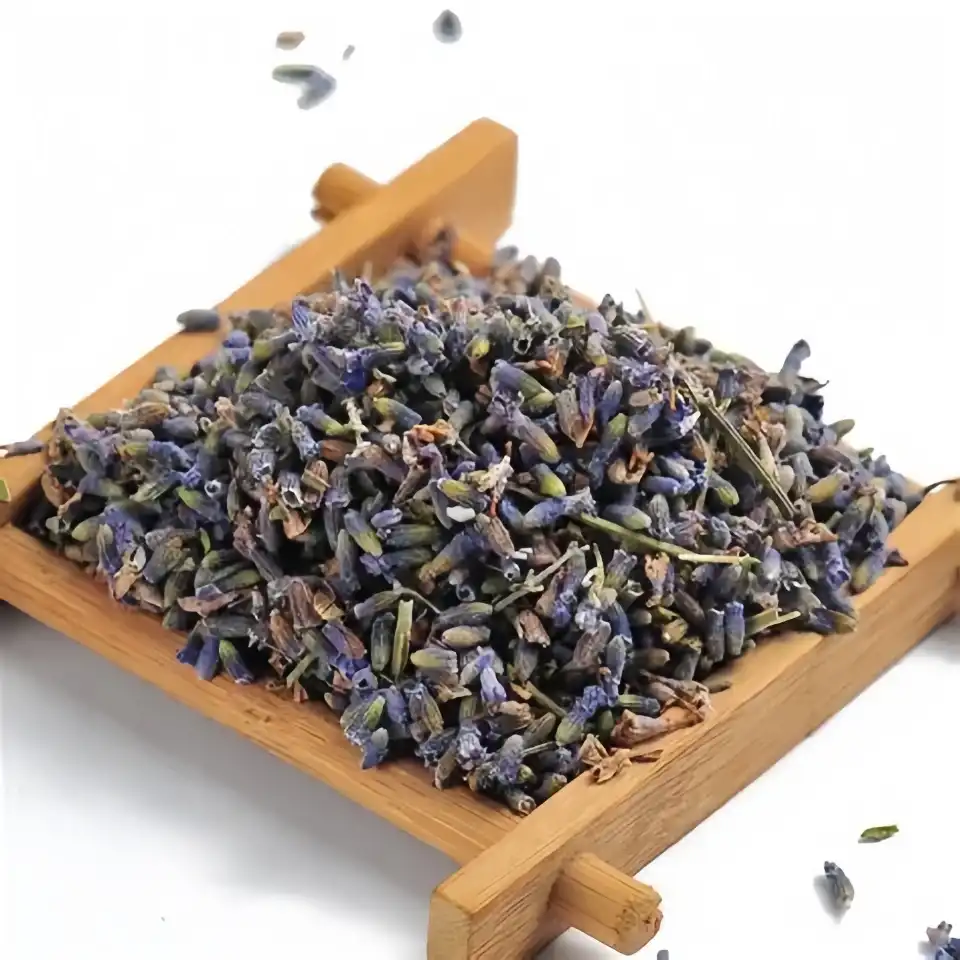
Passionflower and Lemon Balm Mix
Passionflower has been shown to increase GABA levels in the brain, promoting relaxation and reducing anxiety. Lemon balm, on the other hand, has been traditionally used to reduce stress and promote calmness. This blend is particularly helpful for those who find themselves ruminating on worries before bed.
Valerian Root and Hops Combination
Valerian root is a powerful herb known for its sedative properties, while hops (yes, the same plant used in beer brewing) has been found to have sleep-promoting effects. This combination can be particularly effective for those who have difficulty falling asleep due to racing thoughts.
Note: The effectiveness of these blended formulas can vary from person to person. What works well for one individual may not be as effective for another. It's always a good idea to experiment with different blends to find what works best for you.
Besides Drinking Tea, What Else Can You Do Before Bed to Promote Sleep?
While blended herbal sleep tea can aid sleep, it works even better when combined with healthy habits. Here are some additional strategies you can implement to promote better sleep:
Regulate a Consistent Biological Clock
Going to bed and waking up at the same time every day, even on weekends, helps regulate your sleep-wake cycle and makes it easier to fall asleep at night.
Create a Relaxing Bedtime Routine
Engaging in calming activities before bed can help signal to your body that it's time to wind down. This could include reading a book, practicing gentle yoga or stretching, or listening to soothing music. Incorporating this cup of tea into this routine can enhance its effectiveness.
Optimize Your Sleep Environment
Ensure your bedroom is conducive to sleep. This means keeping it dark, quiet, and cool. Consider using blackout curtains, white noise machines, or earplugs if necessary. The right mattress, pillows, and bedding can also significantly improve your sleep quality.
Limit Phone Use Before Bed
The blue light emitted by phones, tablets, and computers can interfere with your body's production of melatonin, the hormone that regulates sleep. Try to avoid electronic devices for at least an hour before bed; if you must use them, use blue light filtering apps.
Practice Meditation
Meditation can help calm a racing mind. Even a few minutes of deep breathing or guided imagery can make a difference.
Improving sleep involves changing your overall sleep habits and making personal adjustments. While external factors can help alleviate insomnia, they must be combined with healthy habits. By implementing these habit changes in conjunction with the tea, you will surely fall asleep quickly and no longer suffer from insomnia.
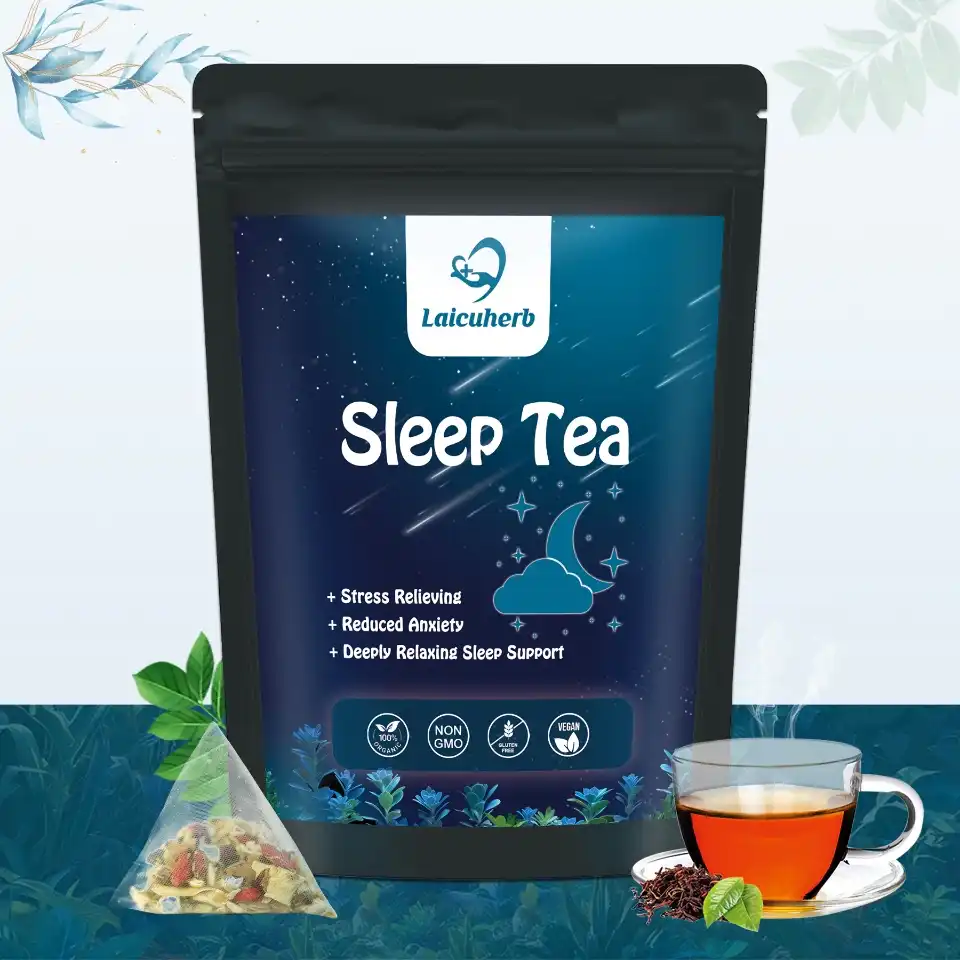
Are you ready to experience this tea that can help you sleep well? Why not try Laicuherb's Sleep Tea? Since 1899, we have integrated Eastern Traditional Chinese Medicine knowledge with modern scientific innovation. What used to be complicated decoctions of Chinese herbs can now be easily solved with a small bag of blended tea. Our specially formulated herbal wellness teas are designed to meet the health needs of today's busy professionals and health-conscious consumers. With natural ingredients that exceed FDA standards and a professional R&D team, we provide high-quality, affordable solutions for better sleep and overall health. Don't let another restless night slip away. Take the first step towards more peaceful, restorative sleep. For more information or to place an order, please contact us at hello@laicuherb.com.
References
- Srivastava, J. K., Shankar, E., & Gupta, S. (2010). Chamomile: A herbal medicine of the past with bright future. Molecular medicine reports, 3(6), 895-901.
- Ngan, A., & Conduit, R. (2011). A double-blind, placebo-controlled investigation of the effects of Passiflora incarnata (passionflower) herbal tea on subjective sleep quality. Phytotherapy Research, 25(8), 1153-1159.
- Lillehei, A. S., & Halcon, L. L. (2014). A systematic review of the effect of inhaled essential oils on sleep. Journal of alternative and complementary medicine, 20(6), 441-451.
- Fernández-San-Martín, M. I., Masa-Font, R., Palacios-Soler, L., Sancho-Gómez, P., Calbó-Caldentey, C., & Flores-Mateo, G. (2010). Effectiveness of Valerian on insomnia: a meta-analysis of randomized placebo-controlled trials. Sleep medicine, 11(6), 505-511.
- Kaushik, M. K., Kaul, S. C., Wadhwa, R., Yanagisawa, M., & Urade, Y. (2017). Triethylene glycol, an active component of Ashwagandha (Withania somnifera) leaves, is responsible for sleep induction. PloS one, 12(2), e0172508.
- Morin, C. M., & Benca, R. (2012). Chronic insomnia. The Lancet, 379(9821), 1129-1141.
The core content team of Laicuherb is composed of experts in the health field, traditional Chinese medicine health preservation consultants, and experienced copywriting planners. Some articles are signed by brand founders or R&D scientists. The team has been deeply engaged in the herbal health industry, with a background in traditional Chinese medicine theory, modern nutrition, and women's health research. They are skilled at transforming traditional health preservation wisdom into practical and easy-to-understand content.











